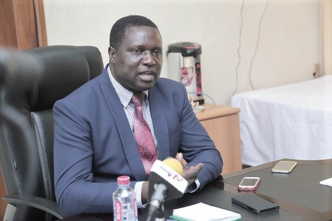The Minster of Education, Dr. Yaw Osei Adutwum, has stated that the issue of teacher deficit in deprived areas remains a national challenge, and as such the ministry and Ghana Education Service (GES) are putting in place measures to facilitate postings to such areas.
According to him, data available to the ministry indicate that there is inequity in distribution of teachers across the country, implying that schools at pre-tertiary level may be overstaffed or understaffed in some parts of the country; hence the introduction of such measures to tackle the situation.
Answering questions in Parliament, the minster elaborated that the inequitable distribution of teachers is caused by various factors – including refusal of newly-trained teachers to accept postings to deprived areas; high attrition rate for teachers in deprived areas; interference in teacher deployment, such as requests for reposting; and inadequate incentives for deployment and retention of teachers in deprived areas.
“The difference in opportunities between urban and rural communities has always existed, affecting teacher deployment in rural areas. In relation to these challenges, the ministry and GES have introduced interventions to bridge the disparity in teacher deployment.
The measures being put in place include the following: deprived area allowance scheme; accelerated promotion for teachers; accommodation for teachers; study leave with pay for teachers; continuous professional development for teachers; and prioritised school preference,” he said.
He explained that the deprived area allowance, for instance – which is equal to 20 percent of the teacher’s salary, will be exclusively given to teachers willing to undertake a posting for at least two years in a classified deprived area – and they will be paid on monthly basis.
As regards the issue of study leave with pay for teachers in deprived areas, he indicated that there is an existing scheme for teachers – but the qualification is three years and then the teacher can start the study in the fourth year. However, the new twist to this is in relation to the deprived areas, which is that this category of teacher qualifies after just two years – one year less than those in urban areas.
He further informed the House that the National Teaching Council (NTC) has introduced a points-based Continuous Professional Development (CPD) calendar for all teachers, whereby the CPD modules and points achieved will inform promotion decisions at GES.
“Some of the CPD modules will be available through public and private services providers at a cost. It is the intention of GES to absorb the cost for the CPD modules for teachers in deprived areas, as the CPD points inform promotion decisions; and this will help teachers in deprived areas to reach higher ranks in the service,” he stressed.
Dr. Adutwum emphasised that it is the ministry’s hope that teachers will accept and maintain their postings to these deprived areas with these new measures in place.
The minister however reiterated that the pupil/teacher ratio (PTR) at basic school level is improving, as information available indicates the total PTR (KG-JHS) in 2018/2019, which was 24, has improved in 2019/2020 to 21 – a ratio that he emphasised is one of the best in the world.










